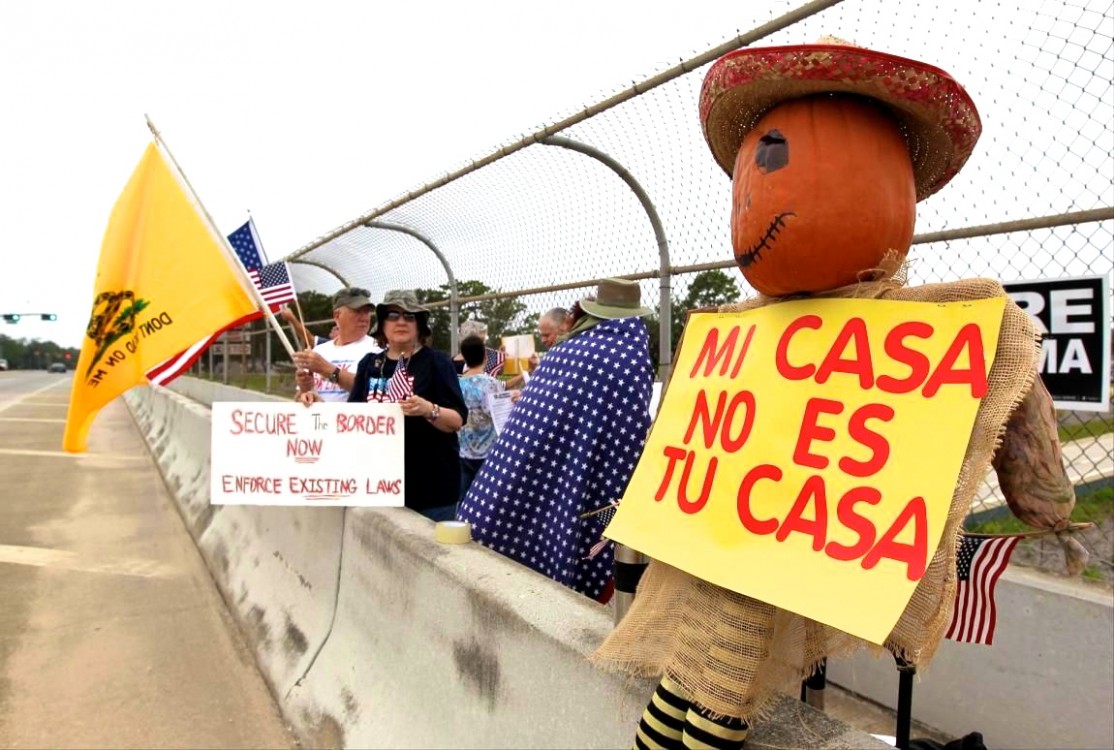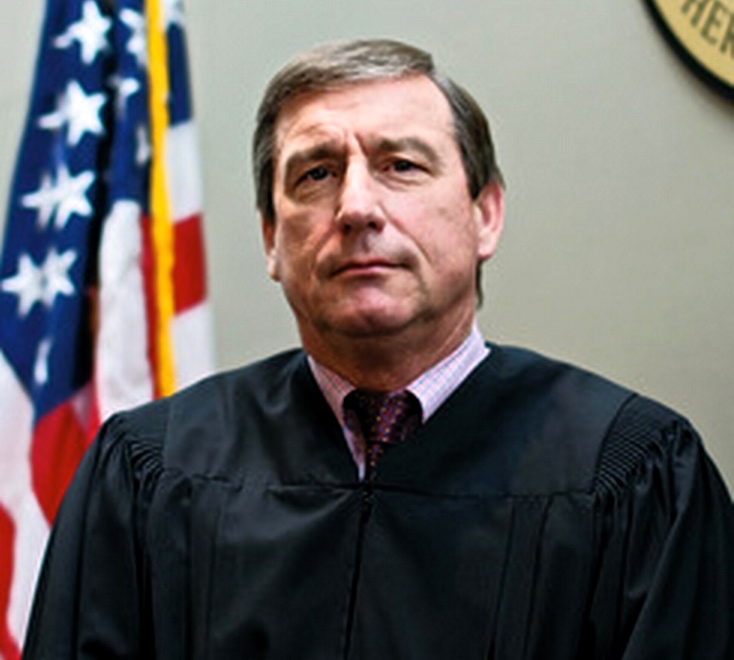
The federal judge in South Texas who temporarily blocked President Barack Obama's executive action on immigration once accused the Obama administration of participating in criminal conspiracies to smuggle children into the U.S. by helping reunite them with parents who live here illegally.
U.S. District Judge Andrew Hanen, who regularly handles border cases but wasn't known for being outspoken on immigration until that previous case, on Monday granted a request by a coalition of 26 states led by Texas to block Obama's action on immigration while a lawsuit to permanently stop the order goes through the courts. Obama's executive action could spare from deportation as many as 5 million people who are in the U.S. illegally.
Hanen, who's been on the federal court since 2002 after being nominated by President George W. Bush, spent several years handling the federal government's land condemnation cases to build the border fence, many times compelling government lawyers to slow down and take necessary procedural steps.
He expressed frustration, however, in a December 2013 order in an immigrant-smuggling case that he'd had four situations in a month in which children who arrived in the U.S. illegally alone were reunited with parents who were themselves in the country illegally.
Hanen sentenced a smuggler to 10 months in prison in that case but saved his most withering words for the U.S. government for not arresting and deporting the mother who hired the smuggler to get her 10-year-old daughter into the U.S. from El Salvador. The government has generally been temporarily reuniting such children with their relatives inside the United States pending deportation proceedings.
"Instead of arresting (the child's mother) for instigating the conspiracy to violate our border security laws, the (Homeland Security Department) delivered the child to her — thus successfully completing the mission of the criminal conspiracy," Hanen wrote.
The judge compared the cases to the government seizing weapons being smuggled across the border and delivering them to the criminals inside the United States who ordered them. "DHS has simply chosen not to enforce the United States' border security laws," Hanen wrote. He said the government's failures to enforce immigration laws were "both dangerous and unconscionable," although he separately noted, "This court takes no position on the topic of immigration reform, nor should one read this opinion as a commentary on that issue."
Hanen grew up in Waco, Texas, graduated from Denison University in Ohio in 1975 and went to Baylor University School of Law in Waco, where he graduated first in his class in 1978, according to a biography provided by his office. He practiced civil trial law for more than 20 years in Houston.
Lawyers for Texas filed the latest lawsuit in Brownsville, where Hanen is one of only two judges in that division of the U.S. District Court for the Southern District of Texas. Hanen, who gets half of all civil cases filed there, was assigned the case through an automated system.
It's not unusual for plaintiffs in sensitive civil cases to shop for a court jurisdiction friendly to their point of view, but the location of the court generally must have some connection to the case. In this case, just about any court in Texas would suffice.
*
Meanwhile, Dan Roberts reports for The Guardian that the Obama administration is moving quickly to overturn the judge's ruling:
The Obama administration is considering trying to swiftly overturn a court restriction against its immigration reforms amid fears that a prolonged legal threat would deter future applicants and give Republicans a window to rally political opposition.
The decision on Monday by Texas district judge Andrew Hanen to freeze the president’s proposed executive action is widely seen as a temporary setback in Washington, and the White House has pledged to appeal the decision in higher courts.
“At the end of the day, we expect to prevail and we expect this will be a successful process,” insisted White House adviser Cecilia Muñoz in a conference call for reporters on Tuesday. “We are going to appeal. We believe we are on very strong legal footing.”
But such a process could still take many months and has already forced the Department of Homeland Security (DHS) to postpone plans to expand its Deferred Action for Childhood Arrivals (Daca) program, which would have removed the threat of deportation for older undocumented migrants from this week.
Despite their confidence about the administration’s ability to win an appeal, immigration campaigners fear any prolonged legal uncertainty may permanently deter people from applying for this and a separate program also aimed at the parents of undocumented children – especially if they believe that it risks identifying themselves as targets for deportation in the future.
The uncertainly also throws a potential lifeline to Republicans, who have been looking for a way to climb down from a threat to withhold funding from DHS next month unless Obama reverses the policy. Some GOP lawmakers have suggested that instead of simply caving in or risking shutting down the department, the new legal uncertainty gives them a reason to defer the funding decision by another couple of months and regroup in the meantime.
House speaker John Boehner leapt on the court decision on Tuesday, claiming vindication for his party’s opposition to the policy. “The president said 22 times he did not have the authority to take the very action on immigration he eventually did, so it is no surprise that at least one court has agreed,” he said in a statement. “We will continue to follow the case as it moves through the legal process.”
On Tuesday evening, the White House hinted that one route out of the legal quagmire was to seek an immediate legal “stay” to limit the impact of Judge Hanen’s injunction while it pursues a formal appeal against the ruling itself.
Muñoz said the Department of Justice was currently considering whether to seek a stay, and would decide in the next couple of days how to proceed. Yet even this route carries political risks for Obama, who was adamant that he would respect the legal process and will not want to be seen to get too far ahead of an appeal court decision.
“We’re not going to disregard this federal court ruling,” said the president in separate remarks to reporters on Tuesday. “The law is the law in this country, and we take things a step at a time.” It would also do little to prevent Republicans from arguing that the administration was not prepared to wait for a ruling on the legality of its policy.
White House press secretary Josh Earnest nevertheless insisted that the court ruling should have no impact on the Republican decision to fund homeland security, arguing that current terrorist threats meant “now seems like an especially bad time to block [funding]”.
3 WAYS TO SHOW YOUR SUPPORT
- Log in to post comments













